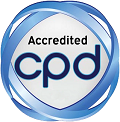Whole Genome Sequencing
The advance of whole genome sequencing technology accelerates the identification of key genetic trait or alteration leading to disease development. The major function of current massively parallel genome sequencers is to perform de novo assembly or resequencing of euchromatic regions, about 94% of entire human genome and representing the reference genome firstly obtained after completion of Human Genome Project. Massively parallel short or medium reads of tens to few thousands with sufficient coverage are able to piece together contiguous euchromatic sequences tolerating 1-4% error rate primarily from inherited DNA polymerase infidelity. However, these short- or medium-read sequencers are not suitable for determining heterochromatic sequences, which cover the yet-to-be completed 6% human genome and contain long repetitive nuclear elements, including the 45S rDNA , about 45-kb per copy and estimated 400 copies distributed across short arms of five human acrocentric chromosomes, and satellite DNAs in centromere. The tandemly repeated 45S rDNA and satellite DNAs are recombinational hot spots and are sealed throughout eukaryotes. Recent evidence further suggests that 45S rDNA rearrangement and concurrent epigenetic changes play a role in mammalian ontogeny and tissue differentiation, and are associated with speciation, aging, cancers, psychological disorders, and neurodegenerative diseases.
The need to develop sequencing platforms capable of reading continuously a single long-stretch DNA/RNA strand with high accuracy is urgent. Several newly proposed approaches show a potential to achieve long-reads of 50 kb or more, and are at various stages of development toward commercialization. These include new version of single molecule real time (SMRT) technology, biological and solid-state nanopore, nanogap, nanoribbon, nanochannel, and electron microscopy, which are moving away from fluorescence-based detection to electronic sensing or imaging.
- Whole genome sequencing
- Next Generation Sequencing
- Third generation sequencing
- De novo sequencing
- Targeted gene sequencing
- Trends in DNA and RNA sequencing techniques
Related Conference of Whole Genome Sequencing
21th World Congress on Tissue Engineering Regenerative Medicine and Stem Cell Research
16th International Conference on Human Genetics and Genetic Diseases
19th International Conference on Genomics & Pharmacogenomics
1st EMBL Conference Cancer Genomics Heidelberg Germany
Genomic Sample Prep and Biomarker Assay Development DNA RNA Extraction NGS Assays Liquid Biopsy Antibody Validation More San Francisco United States of America
Clinical NGS Diagnostics Translating Genomic Data to the Standard of Care San Francisco United States of America
Genomics Sequencing Data Integration Analysis and Visualization San Francisco United States of America
New Fronteirs in Gene Editing San Francisco United States of America
HPLC Congress 2016 London United Kingdom
2016 Genetics and Genomics Conference Vienna Austria
Genome Editing and Engineering Conference San Diego United States of America
Keystone Symposia Stem Cells and Cancer Breckenridge United States of America
Clinical NGS Diagnostics Translating Genomic Data to the Standard of Care San Francisco United States of America
Human Genomics Singapore Singapore
The Probiotics Congress Asia Kuala Lumpur Malaysia
Whole Genome Sequencing Conference Speakers
Recommended Sessions
Related Journals
Are you interested in
- 3D Bioprinting, Organ Fabrication & Bioartificial Tissues - Stem Cell 2026 (Netherlands)
- Aging Biology, Longevity Science & Cellular Rejuvenation - Stem Cell 2026 (Netherlands)
- Artificial Intelligence and Computational Biology in Regenerative Medicine - Stemgen 2026 (Japan)
- Bioinformatics, AI Models & Predictive Regeneration - Stem Cell 2026 (Netherlands)
- Biomaterials and Nanotechnology in Regenerative Medicine - Stemgen 2026 (Japan)
- Cancer Stem Cells & Targeted Therapeutics - Stem Cell 2026 (Netherlands)
- Cancer Stem Cells and Oncology - Stemgen 2026 (Japan)
- Cardiac, Vascular & Musculoskeletal Regeneration - Stem Cell 2026 (Netherlands)
- Cardiovascular Regeneration - Stemgen 2026 (Japan)
- Clinical Translation of Stem Cell Therapies - Stem Cell 2026 (Netherlands)
- Clinical Trials and Translational Stem Cell Research - Stemgen 2026 (Japan)
- Commercialization, Biobanking & Industry Innovations - Stem Cell 2026 (Netherlands)
- Ethical, Legal, and Social Implications in Stem Cell Research - Stemgen 2026 (Japan)
- Ethical, Regulatory & Quality Control Frameworks - Stem Cell 2026 (Netherlands)
- Exosomes, Extracellular Vesicles & Cell-Free Therapeutics - Stem Cell 2026 (Netherlands)
- Future Trends: Organoids, Bioengineering, and Next-Generation Therapies - Stemgen 2026 (Japan)
- Gene Editing and CRISPR Technologies - Stemgen 2026 (Japan)
- Gene Editing, CRISPR Therapies & Regenerative Genomics - Stem Cell 2026 (Netherlands)
- Induced Pluripotent Stem Cells (iPSCs) and Reprogramming - Stemgen 2026 (Japan)
- Mesenchymal Stem Cells (MSCs) in Therapy - Stemgen 2026 (Japan)
- Regeneration in Neurodegenerative & Spinal Cord Disorders - Stem Cell 2026 (Netherlands)
- Regenerative Approaches in Diabetes & Metabolic Disorders - Stem Cell 2026 (Netherlands)
- Regenerative Dentistry and Craniofacial Applications - Stemgen 2026 (Japan)
- Regenerative Immunology & Immune Modulation - Stem Cell 2026 (Netherlands)
- Regenerative Medicine and Tissue Engineering - Stemgen 2026 (Japan)
- Stem Cell Banking and Cryopreservation - Stemgen 2026 (Japan)
- Stem Cell Biology and Cellular Mechanisms - Stemgen 2026 (Japan)
- Stem Cell Engineering & Cellular Reprogramming - Stem Cell 2026 (Netherlands)
- Stem Cells in Neurological and Neurodegenerative Disorders - Stemgen 2026 (Japan)
- Tissue Engineering, Biomaterials & Smart Scaffolds - Stem Cell 2026 (Netherlands)


